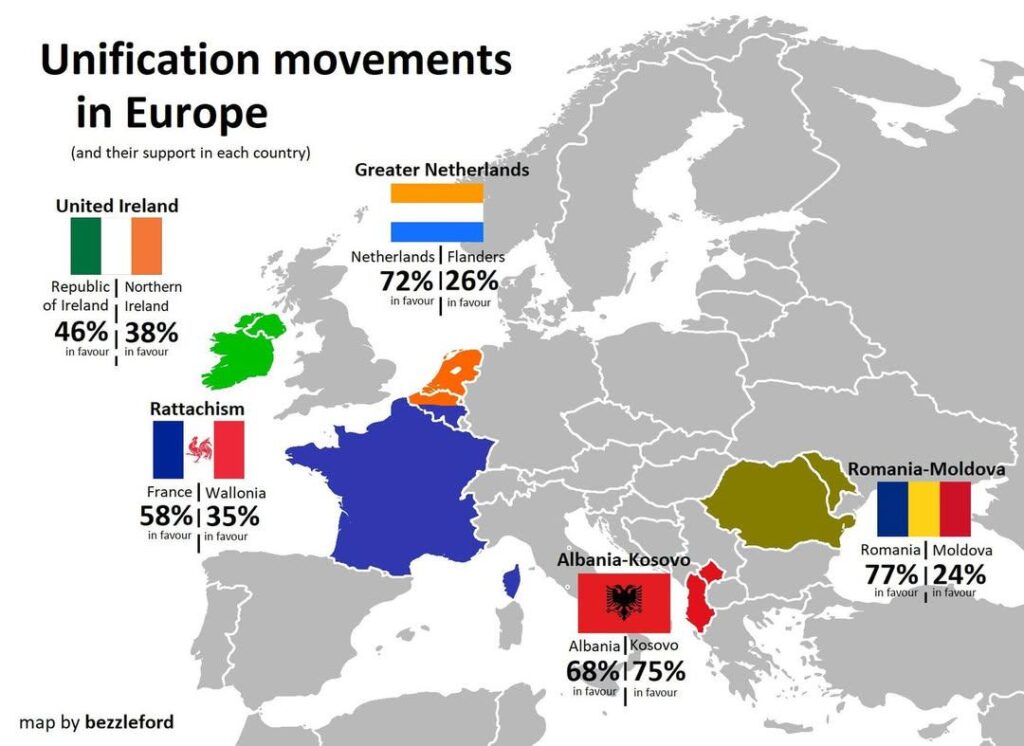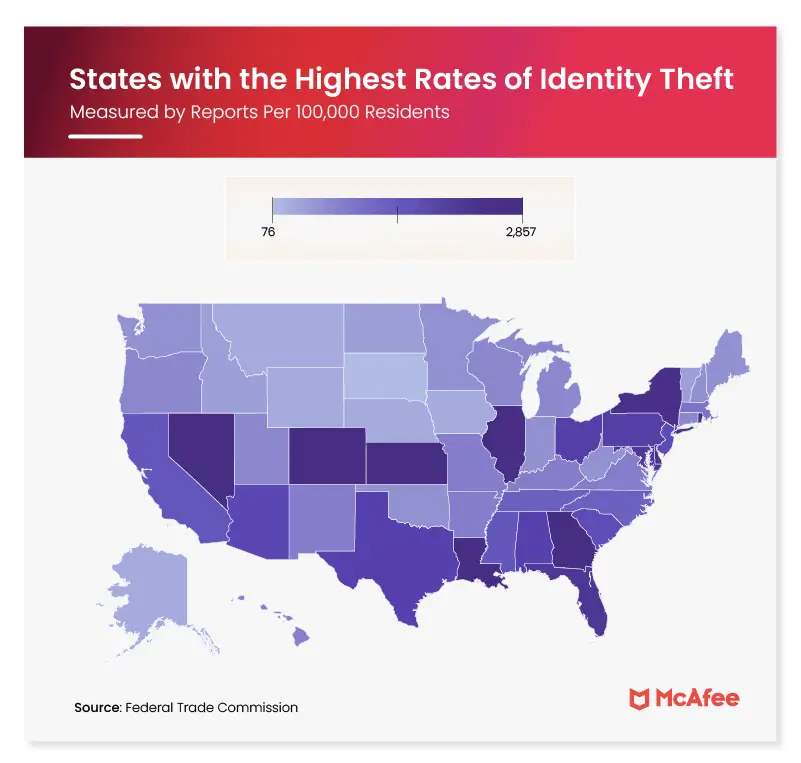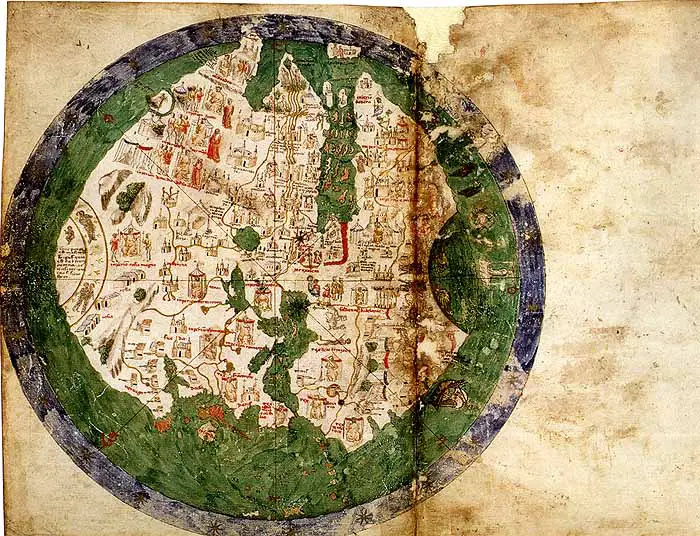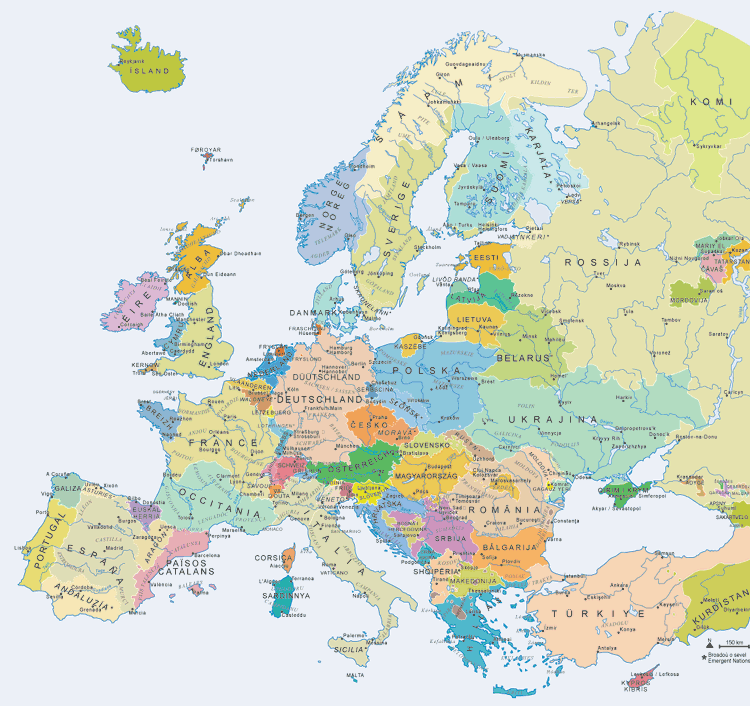European Unification Movements
The 20th century in Europe was marked by the breakup of countries—the USSR, Yugoslavia, and Czechoslovakia all disappeared from the map. Unification, by contrast, has been rare. The most notable case is Germany, reunified in 1990.
Still, the idea of bringing together countries or regions hasn’t vanished. Some of these proposals lean on cultural or historical ties; others are fueled by politics and identity. But how much public support do they really have, and could any of them actually happen?
Reddit user bezzleford created a visualization of several unification movements, combining polling data. Below, we’ll walk through the main examples.

United Ireland
In the Republic of Ireland, polls show solid support for reunification—usually around two-thirds in favor. In Northern Ireland, the numbers are far more mixed, with surveys often showing around 35–40% in favor and a majority preferring to remain in the UK.
The legal framework for a possible referendum is already in place thanks to the Good Friday Agreement of 1998. But since consent in Northern Ireland is required, and current polling shows no majority, this remains more of a long-term debate than an imminent change.
Greater Netherlands (Netherlands + Flanders)
The idea of merging the Netherlands with Dutch-speaking Flanders has been around for over a century. Polls from the mid-2000s suggested around three-quarters of Dutch citizens liked the idea, while support in Flanders was much weaker—closer to one-quarter.
Historically, the idea grew from cultural nationalism, but today it has little political traction. In Belgium, debates focus more on autonomy or independence for Flanders rather than joining the Netherlands. For now, this remains an idea with little real momentum.
Rattachism (Wallonia joining France)
“Rattachism” refers to the proposal for French-speaking Wallonia to join France. Some surveys suggest that a majority of French people would welcome it, but only about a third of Walloons support the idea.
The movement has roots as old as Belgium itself, but active political groups promoting it are small and not represented in parliament. In practice, Walloon voters show more interest in reforming Belgium’s federal system than in leaving it.
Albania–Kosovo
Support here is much stronger. About 70% of Albanians favor unification, and in Kosovo, surveys usually show between 55% and 75% in favor.
What makes this movement so popular? The answer lies in shared bloodlines and culture, but here’s the catch: geopolitics throws up roadblocks at every turn. Kosovo’s very existence as an independent state remains a hot-button issue, with several countries refusing to recognize it. Add potential unification to that mix, and you’re looking at a diplomatic powder keg that could easily destabilize the entire region.
Romania–Moldova
Romania and Moldova share a language and history, but polls show mixed opinions. In Romania, surveys usually find around 80% in favor of reunification. In Moldova, opposition is stronger: a recent poll found that most citizens are against unification.
There are cultural and emotional arguments for union, but politically Moldova has tended to pursue its own course. For now, the idea stays more in the background of political life rather than on the front burner.









Germany and Austria?
Interesting question! Modern Germans and Austrians generally aren’t interested in unifying – Austrians value their independence and neutrality, while Germans often see it as either historically problematic or just unnecessary since both countries are already so integrated through the EU. Why merge when you’re already working together so well?